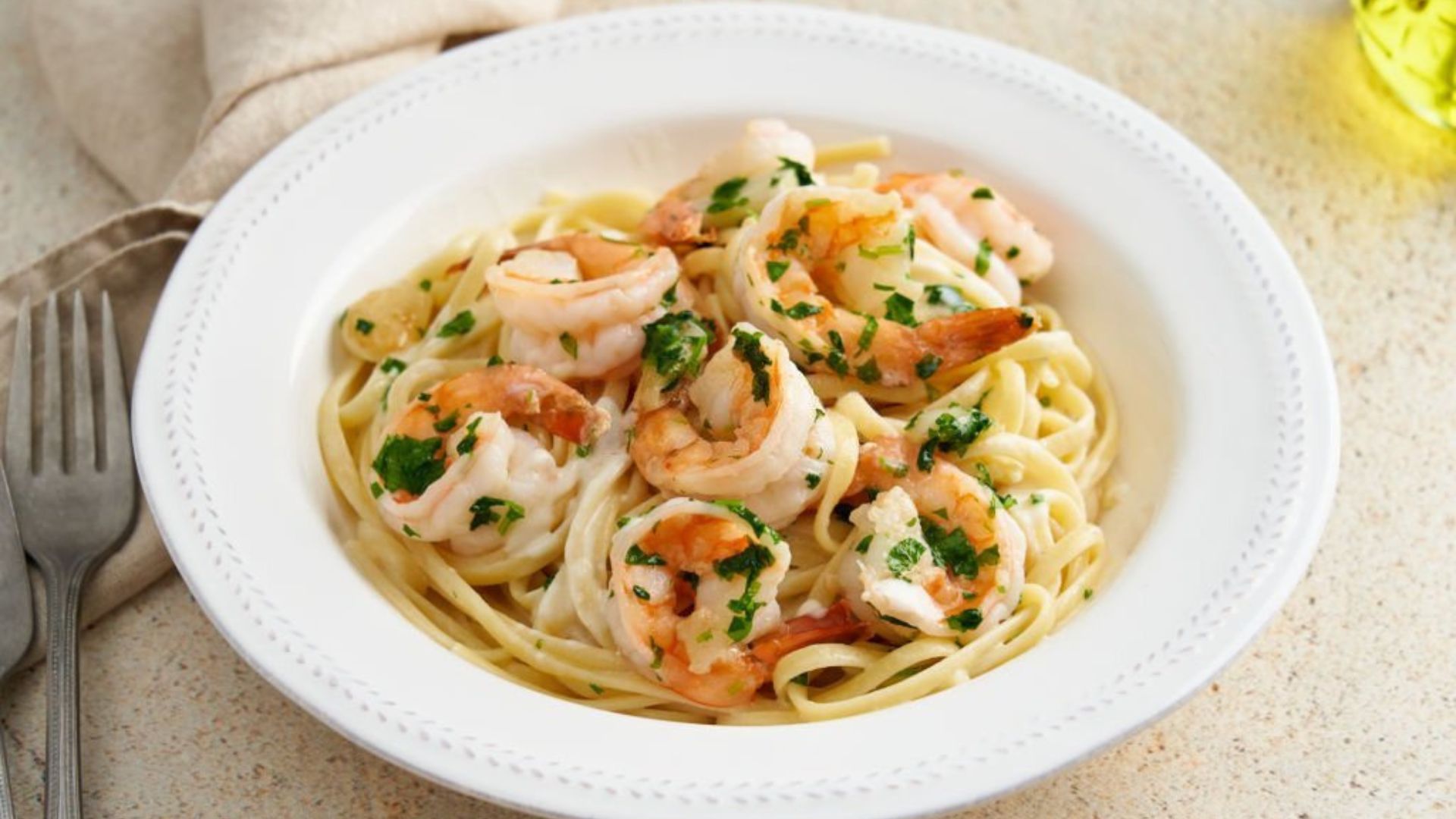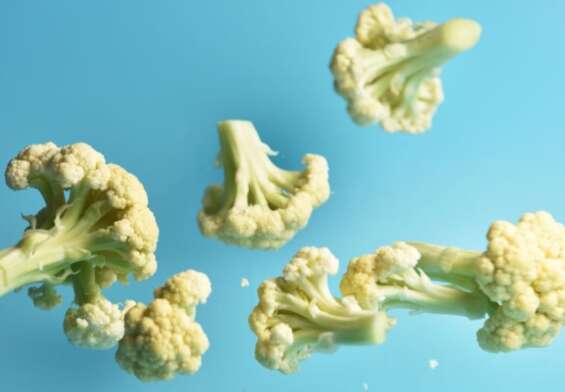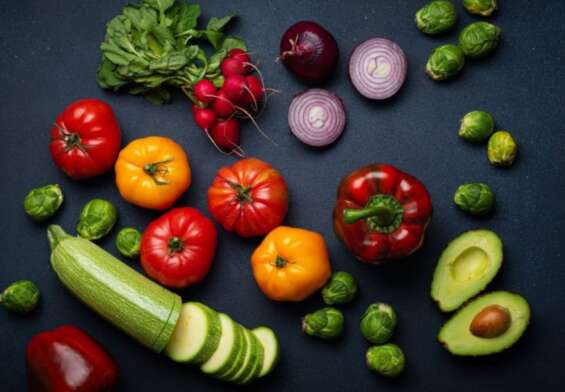
Okinawa Diet: Live Longer with Healthy Eating
The Okinawa Diet is a traditional way of eating found among the people of Okinawa, Japan. It is based on the traditional diet of the Ryukyu Islands, and is characterized by an emphasis on whole grains, vegetables, and fish. This diet has been credited with helping to extend the longevity of the people of Okinawa and is known for its low calorie content and high levels of nutrients. The Okinawa Diet is a great way to improve one’s health, as it is rich in vitamins, minerals, and antioxidants. Additionally, it is low in sugar, saturated fat, and cholesterol, which helps to prevent chronic diseases like diabetes and heart disease.
Exploring Okinawa’s Unique Diet: A Closer Look at the Health Benefits
Okinawa is a small island in Japan that has earned a reputation for having some of the longest living people in the world. It’s no wonder that this has piqued the interest of health enthusiasts around the globe, who are eager to uncover the secret to Okinawan longevity. And the answer? Okinawa’s unique diet!
Okinawans have a diet that is heavily plant-based, with vegetables and seaweed making up the majority of meals. They also enjoy smaller portions of pork, fish, and other animal proteins. But it’s not just the food that makes Okinawa’s diet so special – it’s the way it’s prepared. The ingredients are cooked lightly and without much oil, allowing the natural flavors of the food to shine through.
But what are the health benefits of such a unique diet? Well, for starters, it’s high in antioxidants, which help to protect the body from disease and premature aging. Additionally, due to the lower fat content, Okinawans are less likely to suffer from obesity and related health issues.
And let’s not forget about the mental health benefits of Okinawa’s diet. Eating a plant-based diet has been linked to lower levels of anxiety and depression, thanks to the increased intake of vitamins and minerals. Plus, since the meals are prepared with mindful intention, it can be a great way to practice mindfulness and reduce stress levels.
So, if you’re looking to improve your health and wellbeing, why not take a page out of Okinawa’s book and give their unique diet a try? After all, the secret to their longevity is right in front of our eyes – and it’s delicious too!
The Traditional Okinawa Diet: What Makes it Unique?
The Okinawa Diet is one of the most unique and healthy diets in the world. From sweet potatoes to sea vegetables, the traditional Okinawan diet is full of delicious and nutritious foods that can help you live a long and healthy life. But what makes it so special?
First, the traditional Okinawa diet is packed with fresh, locally grown fruits and vegetables. Sweet potatoes, bitter melons, and pumpkin are some of the staples of the Okinawan diet, and are packed with vitamins, minerals, and antioxidants that are essential for a healthy lifestyle.
Second, the diet is full of delicious and nutritious seafood. From sashimi to seaweed, the Okinawan diet is full of fish, shellfish, and other seafood that are high in Omega-3 fatty acids, essential vitamins and minerals, and proteins.
Third, the diet is low in calories and fat. Many of the foods in the traditional Okinawan diet are low in fat and calories, making it an ideal diet for weight loss and maintaining a healthy weight.
Finally, the Okinawan diet is full of unique and flavorful spices and herbs. From turmeric to ginger, the traditional Okinawan diet is full of flavor and has been known to help reduce inflammation, improve digestion, and reduce cholesterol.
Overall, the traditional Okinawa diet is full of delicious and nutritious foods that are great for your health. From fresh fruits and vegetables to unique spices and herbs, the Okinawan diet is one of the most unique and healthy diets in the world. So, if you’re looking for a delicious and nutritious way to stay healthy, the traditional Okinawa diet is definitely one to consider!
Understanding the Principles of the Okinawa Diet: A Guide to Eating for Longevity
Welcome to the Okinawa Diet, the eating plan that promises to make you live longer! If you’re ready to embark on the journey to longevity, you’ve come to the right place. Here, we’ll explore the principles of the Okinawa Diet, so you can make the most of your new healthier lifestyle.
So, what is the Okinawa Diet? Well, it’s simple: it’s a way of eating that is based on the traditional foods of the Okinawan people. This means eating lots of vegetables and fruits, along with a moderate amount of fish and lean meats. This way of eating has been linked to lower rates of cardiovascular disease, diabetes, and even some forms of cancer.
But the Okinawa Diet isn’t just about what you eat, it’s also about how you eat. For example, Okinawans eat smaller portions, and they take their time while eating. This is known as hara hachi bu, or “eating until you are 80% full”. This allows them to enjoy their meals without overeating, and it also helps to keep their weight in check.
Another important part of the Okinawa Diet is a focus on healthy fats. This means eating lots of monounsaturated fats like olive oil and nuts, as well as polyunsaturated fats like salmon and tuna. These healthy fats can help to reduce inflammation and lower cholesterol, both of which can lead to better overall health.
Finally, the Okinawa Diet also emphasizes the importance of physical activity. Okinawans are known for their active lifestyles, so it makes sense that they would recommend regular exercise. This could be anything from walking or biking to swimming or jogging.
So there you have it, the basics of the Okinawa Diet. Eating like an Okinawan can be a great way to improve your health and live a longer, healthier life. And if you’re looking for a bit of humor while you learn, don’t forget to hara hachi bu!
The Okinawa Diet: An Overview of Food, Supplements and Health Benefits
The Okinawa Diet is all the rage these days, and for good reason! It’s a traditional diet from the Okinawa islands in Japan, which is said to promote longevity and good health. But what is the Okinawa Diet, really? Well, let’s break it down.
First off, the Okinawa Diet is about eating food that is natural and unprocessed. This means eating lots of whole grains, fruits, vegetables, and legumes, as well as some fish and seaweed. It’s important to keep portion sizes small, and to avoid processed and sugary foods.
Supplements are also an important part of the Okinawa Diet. Many people take supplements to get the extra vitamins and minerals they need, as well as to boost their energy levels. Supplements that are often recommended for the Okinawa Diet include omega-3 fatty acids, green tea extract, and turmeric.
Now, on to the good stuff – the health benefits! The Okinawa Diet has been linked to improved heart health, lower cholesterol, and better mental health. It can also help with weight loss and reduce the risk of diabetes. Plus, it’s said to boost your energy levels and help you feel happier overall!
So, if you’re looking to live a healthier lifestyle, why not give the Okinawa Diet a try? With its whole, natural foods and supplements, you may just find yourself living a longer, healthier life.
Superfoods of the Okinawa Diet: How to Incorporate Them Into Your Diet
If you’re looking to stay healthy and fit, why not take a page from the Okinawa diet? An ancient, time-tested diet plan known for its long-living population, the Okinawa diet emphasizes plant-based foods, fresh vegetables, and healthy fats. But the secret to this diet’s success lies in its superfoods!
So what are these superfoods? Well, take seaweed, for example. This crunchy snack is low in calories and high in fiber and minerals, making it a great addition to any meal. And don’t forget goya, or bitter melon. This vegetable helps reduce blood sugar levels and cholesterol, making it a great choice for diabetics.
But how do you incorporate these superfoods into your diet? Well, for starters, you can try adding seaweed to your salads or soups. Or make a quick stir-fry with bitter melon and your favorite vegetables.
And don’t forget about tofu! Whether you’re looking for a high-protein snack or a tasty substitute for meat, tofu is a great addition to any meal. And if you’re feeling really adventurous, why not try adding some mozuku seaweed to your next stir-fry?
So there you have it—three superfoods of the Okinawa diet that you can easily incorporate into your diet. Sure, it might take some getting used to, but with a little creativity and a lot of flavor, you’ll be eating like an Okinawan in no time!
The Okinawa Diet: What You Need to Know About Portion Sizes
If you’ve heard of the Okinawa Diet, you know it’s all about eating smaller portions. But what exactly does that mean? Well, we’ve got the scoop on portion sizes.
First, it’s important to understand that Okinawans don’t eat until they’re full. Instead, they practice hara hachi bu, which means eating until you’re 80% full. That means you’ll still feel a bit of hunger, but won’t be stuffed.
Next, it’s important to understand the concept of calorie density. Okinawans eat mostly plant-based foods, so their meals are low in calories but high in nutrients. Eating lots of plant-based foods keeps them feeling fuller for longer, so they don’t need to eat as much.
When it comes to portion sizes, Okinawans tend to eat smaller servings. A typical meal might include a handful of vegetables, a few ounces of meat or fish, and a bowl of soup or grains.
Finally, it’s important to remember to eat slowly and savor each bite. Okinawans practice mindful eating, which means they focus on the flavors and textures of their food and enjoy the experience of eating.
So there you have it! That’s a quick overview of the Okinawa Diet and portion sizes. Keep in mind that you don’t have to follow the diet exactly, but by following these guidelines you can ensure you’re eating healthier and more balanced portions. Bon appetit!
The Okinawa Diet: How It Differs from Other Diets
The Okinawa Diet is the envy of the world – and with good reason. It’s been proven to help keep Okinawans healthy and trim, and even extend their lifespan. But how does it differ from other diets? We’ve got the scoop.
First of all, the Okinawa Diet is all about balance. Okinawans try to get the right mix of carbohydrates, proteins, and fats, as well as plenty of fruits and vegetables. This is a far cry from many other diets that focus on reducing one food group or counting calories.
The Okinawa Diet also emphasizes the importance of portion control. Okinawans have traditionally eaten smaller meals throughout the day, with the majority of their calories coming from vegetables. This is in contrast to many other diets that require large portions of meat and processed foods.
Finally, the Okinawa Diet emphasizes the importance of eating for pleasure. Okinawans enjoy their food and take time to savor it – something that can be hard to do on a strict diet.
So there you have it – the Okinawa Diet is all about balance, portion control, and pleasure. It’s no wonder it’s been so successful in helping people stay healthy and happy!
How to Cook with the Okinawa Diet in Mind
Are you ready to take your health up a notch and experience the incredible benefits of the Okinawa Diet? Well, buckle up and get ready for a culinary adventure! Here are some tips and tricks for cooking with the Okinawa Diet in mind:
- Go veggie-crazy! The Okinawa Diet is all about loading up on fresh, delicious produce. Try making your own veggie stir-fry or a simple salad packed with nutrient-rich greens and veggies. You can also try incorporating more plant-based proteins into your meals, like tofu, tempeh, and beans.
- Say “sayonara” to refined sugar and processed foods. The Okinawa Diet is all about cutting out processed and refined foods, so take a pass on the packaged snacks and sugary treats. Instead, try making your own healthy snacks, like fruit and nut bars or trail mix.
- Get creative with your carbs. While the Okinawa Diet recommends reducing your intake of refined carbs, it doesn’t mean you have to give up carbs altogether. Try incorporating whole grains like brown rice and quinoa into your meals, or switch it up with some yummy sweet potatoes.
- Let fish be your friend. The Okinawa Diet encourages eating plenty of fish, so make sure to get your fill of omega-3 fatty acids. Try baking, grilling, or poaching some salmon, tuna, or trout, or whip up a delicious seafood stew.
- Have some fun with fermented foods. Fermented foods are a great way to add flavor to your meals and promote healthy digestion. Try making your own kimchi or sauerkraut, or pick up some store-bought varieties to add to your meals.
Cooking with the Okinawa Diet in mind doesn’t have to be boring or restrictive. With a little creativity and some fresh ingredients, you can create delicious and nutritious meals that are sure to put a smile on your face. Bon appétit!
The Link Between the Okinawa Diet and Diabetes Prevention
Are you wondering what the secret is to avoiding diabetes? Well, it may be time to start thinking about the Okinawa Diet! The Okinawa Diet has been associated with a decreased risk of diabetes, and this is mainly due to its focus on whole grains, fruits, vegetables, and omega-3 fatty acids.
The Okinawa Diet is a traditional Japanese diet that dates back centuries. It is based on the idea of “hara hachi bu” which means to “eat until you are 80% full”. This encourages Okinawans to eat until they are no longer hungry, but not to the point of feeling overly full. This practice helps to prevent overeating and keeps calorie intake in check.
The Okinawa Diet also emphasizes the consumption of whole grains, vegetables, and fruits. Whole grains are a great source of fiber and are low in calories, which can help to regulate blood sugar levels and reduce the risk of diabetes. Vegetables and fruits are packed with vitamins and minerals, which can help to keep your body healthy and your immune system strong.
Omega-3 fatty acids are also a key component of the Okinawa Diet. Omega-3 fatty acids are essential for maintaining a healthy heart and can help to reduce inflammation. This is important for preventing diabetes, as inflammation is linked to insulin resistance.
So, if you’re looking for a way to reduce your risk of diabetes, why not give the Okinawa Diet a try? By eating until you’re 80% full and consuming a variety of whole grains, fruits, vegetables, and omega-3 fatty acids, you’ll be on your way to better health in no time!
The Okinawa Diet and Cognitive Health: What You Need to Know
Are you interested in learning more about the Okinawa Diet and its effects on cognitive health? Well, look no further – you’ve come to the right place!
The Okinawa Diet has been gaining popularity in recent years due to its potential benefits for cognitive health. This diet consists of mostly plant-based foods, including plenty of vegetables, fruits, legumes, and whole grains. Plus, it’s low in sugar and saturated fat. But what does research say about its effects on cognitive health?
Well, studies have found that following the Okinawa Diet may have positive effects on cognitive health, particularly in older adults. Specifically, it may help protect against age-related cognitive decline, which is a major concern for many people.
But the benefits of the Okinawa Diet don’t end there! Studies have also found that it may help protect against memory loss, depression, and dementia. So, if you’re interested in maintaining your cognitive health as you age, the Okinawa Diet is definitely something to consider.
Of course, it’s important to remember that the Okinawa Diet is not a miracle cure. It’s important to also engage in other activities that promote cognitive health, such as exercising regularly, getting enough sleep, and challenging your mind with activities like reading and puzzles.
So, if you’re looking for ways to promote your cognitive health and stave off age-related decline, the Okinawa Diet may be a great option to consider. With its focus on plant-based foods, low sugar and saturated fat, and potential cognitive health benefits, it’s definitely worth giving a try!
The Benefits of a Plant-Based Diet: Okinawa Diet Edition
Are you looking for a new way to improve your health and longevity? Look no further than the Okinawa Diet! This plant-based diet has been helping people in the Okinawa region of Japan live longer, healthier lives for centuries. In this article, we’ll explain the benefits of the Okinawa Diet and why it’s the perfect choice for anyone looking to make a positive change in their life.
The Okinawa Diet focuses on fresh, local, organic produce. The main staples of the diet are sweet potatoes, soybeans, and seaweed. This combination provides an abundance of vitamins, minerals, and antioxidants that help combat inflammation and boost your immune system. Plus, it’s low in fat, cholesterol, and sodium, so it helps maintain a healthy weight.
Another benefit of the Okinawa Diet is its focus on healthy fats. It emphasizes the use of monounsaturated fats, like olive oil, which have been linked to lower risk of heart disease and stroke. And because it’s plant-based, you don’t have to worry about consuming unhealthy animal products.
Finally, the Okinawa Diet encourages physical activity. This helps you stay fit and active, so you can continue to enjoy the benefits of the diet for years to come. Plus, it’s a great way to stay connected with your community and build strong relationships with your family and friends.
So if you’re looking for a way to improve your overall health, the Okinawa Diet is a great option. With its focus on fresh, locally sourced produce and healthy fats, it has the potential to dramatically improve your health and longevity. So what are you waiting for? Give the Okinawa Diet a try and see the difference it can make in your life!
Conclusion
The Okinawa Diet is a traditional Japanese diet that is based on a high intake of vegetables and fish, and a low intake of calories and saturated fats. It is a nutritionally balanced diet that has been linked to a number of health benefits, including a reduced risk of disease and improved overall health. While more research is needed to fully understand the effects of the Okinawa Diet, its traditional approach to food and eating is an appealing way to maintain a healthy lifestyle.











